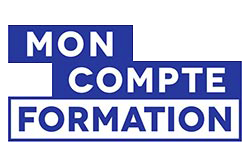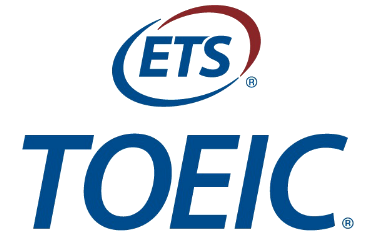Parcours de formation
(Exemples)
|

|
First Lesson
This is the first lesson with your trainer! The goal in this lesson is to go over your needs and get to know one another. |
30 min
|

|
I have been to ...
This lesson covers the present perfect of the verb be. |
60 min
|

|
Question words
In this lesson you will practise asking questions with the words who, why, where, when, whose, etc. The worksheet assumes a basic knowledge of the present simple, present continuous and past simple. |
60 min
|

|
Next week
You will learn the structure going to + infinitive for talking about the future. The lesson plan includes a listening activity. |
60 min
|

|
Is this yours?
In this lesson you will learn how to use possessive pronouns. To help you practise the target language there are speaking and text-based activities, plus a picture activity on everyday objects that people own. You will also learn the difference between possessive pronouns and possessive adjectives. |
60 min
|

|
Possessive adjectives
In this lesson you will learn the possessive adjectives my, your, his, her its, our, your, and their. |
60 min
|

|
Numbers and the verb 'to be'
This class focuses on helping learners understand how to say and use numbers in English. This looks at basic numbers such 1-10 and also larger numbers such as 20s 50s 80s etc. We also have the present simple with ‘be’ to say things like it is and I am. |
60 min
|

|
Basic Tasks in the Past
This class works on a combination of grammar and vocabulary. For vocabulary, it looks at the verbs we use with particular tasks and for grammar it works on the past simple. It provides some fundamental building blocks in language development to talk about everyday activities. |
60 min
|

|
Telling the time
Time can be a difficult stumbling block for learners but is a very practical and useful language tool. This unit helps learners discuss routines and appointments using accurate time based language. |
60 min
|

|
Years
Years and numbers are often confused. So, this unit will teach learners the difference between numbers in the thousands and years. This will allow them to talk about key actions and events in the past and/or future. |
60 min
|

|
Post Training Assessment
This is the final lesson of your training program. You will discuss your achievements, the progress you have made and look at points that you could work on in the future. |
30 min
|

|
First Lesson
This is the first lesson with your trainer! The goal in this lesson is to go over your needs and get to know one another. |
30 min
|

|
Making and taking calls
The telephone is one of the most important means of communication in an office. Learning the right thing to say when you make and receive phone calls should be a priority. |
60 min
|

|
Taking and leaving messages
Most people become flustered when asked to leave a message with another person or on voicemail. It takes some skill and practice to be able to effectively take and leave messages on the phone. |
60 min
|

|
Setting an appointment
Setting an appointment is a very important skill in the corporate world. In this lesson, you will learn the basic expressions you need to master to be able to set an appointment over the telephone. |
60 min
|

|
Making enquiries
It’s important to know how to make enquiries on the phone. In this lesson, you will learn the proper way of asking questions in English. |
60 min
|

|
Following up requests and orders
After making a call to request or order something over the phone, you still need to follow it up by calling again. Learn the right expressions and vocabulary to be able to perform this activity. |
60 min
|

|
Requesting for and clarifying information
It is sometimes hard to understand each other on the phone. For this reason, you need to know how to request and clarify information. |
60 min
|

|
The workplace
In this lesson you will learn how to describe different places of work as well as common collocations for typical work tasks. The lesson assumes prior of knowledge of the present simple and expressions of frequency. |
60 min
|

|
Talking about project stages
The various stages of a project may need to be discussed especially during meetings. You have to be equipped with the right expressions to do this task in English. |
60 min
|

|
Updating colleagues on a project
When you are asked about the status of the project, you need to give updates on how the project is doing. What is the best way to do this? What expressions and grammatical structures should you use to be able to perform this task well? This lesson will delve into that. |
60 min
|

|
Post Training Assessment
This is the final lesson of your training program. You will discuss your achievements, the progress you have made and look at points that you could work on in the future. |
30 min
|

|
First Lesson
This is the first lesson with your trainer! The goal in this lesson is to go over your needs and get to know one another. |
30 min
|

|
Family
In this lesson you will learn how to talk about your families using vocabulary for family members and possessives. Basic questions for requesting information about people are also reviewed in the lesson. |
60 min
|

|
I can drive
In this lesson you will learn how to talk about ability using the modal verb can/can’t. |
60 min
|

|
What’s the weather like?
This worksheet presents basic vocabulary for describing the weather. Talk about the weather in your country using adverbs of frequency. |
60 min
|

|
Birthdays and parties
In this lesson you will learn and practice party vocabulary. There are activities on what you find at a party, what happens before a party plus an activity on birth dates to revise ordinal numbers and the future with ‘will + infinitive’. |
60 min
|

|
At a Cafe
Going to a cafe is great fun and something many of us do every day or many times in a week, This class gives us vocabulary to know the names of things we encounter in a cafe. This includes food and drink items as well as the people we meet. |
60 min
|

|
Places in town
This is a very practical class. It allows us to discuss the things that we might find around our town. This focuses on types of shops, services and landmarks such as cafes, markets and hospitals. It also uses the past simple so we can talk about what we did in our town yesterday. |
60 min
|

|
Public transport
This class focuses on public transport. It teaches learners vocabulary for different types of transport as well as vocabulary for usage of such transport. It also brings in the grammar structure present simple. |
60 min
|

|
At the supermarket
This class will helps learners navigate the supermarket using English. It introduces vocabulary for food and drink as well as for shopping. It also teaches the structure ‘Will’ to help learners discuss their shopping plans. For example, I will buy a chocolate cake. |
60 min
|

|
Asking for and giving directions
In this unit learners will focus on vocabulary for asking for and giving directions. They will listen to a conversation between a tourist and a local. At the end of the lesson learners will be able to correctly use the prepositions of place. |
60 min
|

|
Post Training Assessment
This is the final lesson of your training program. You will discuss your achievements, the progress you have made and look at points that you could work on in the future. |
30 min
|

|
First Lesson
This is the first lesson with your trainer! The goal in this lesson is to go over your needs and get to know one another. |
30 min
|

|
At home
In this lesson you will learn how to describe household chores and different rooms in their homes. |
60 min
|

|
Bright ideas
In this lesson you will read about UK businessman Richard Branson's ideas. The worksheet includes a grammar exercise on defining relative clauses with 'who', 'which', 'that', 'whose' and 'where'. |
60 min
|

|
Everyday expressions
In this short lesson you will learn 9 typical English social expressions. |
60 min
|

|
Mobile phones - Cell phones
In this lesson you will learn useful words and phrases for talking about their mobile devices. |
60 min
|

|
Money vocabulary
In this lesson you will learn and practise a variety of vocabulary related to money and value. |
60 min
|

|
Coffee personality
In this well-rounded lesson you will read a short article on how people's coffee drinking preferences determine their personality traits. A number of adjectives for describing character are introduced, and comparative and superlative forms are studied in the grammar part of the lesson. |
60 min
|

|
Informal emails
In this lesson you will learn how to write informal emails. The worksheet presents a variety of typical words and expressions used when greeting someone in an email, writing pleasantries, attaching files, etc. |
60 min
|

|
Photo story
In this lesson you will listen to Kate talking about her Facebook photos and study the past continuous tense. |
60 min
|

|
Stereotypes
In this lesson you will read a short article on the perception of British culture according to expats living in Britain. The passive voice is studied in the grammar part of the lesson. |
60 min
|

|
Post Training Assessment
This is the final lesson of your training program. You will discuss your achievements, the progress you have made and look at points that you could work on in the future. |
30 min
|

|
Discussion Lesson
The "Discussion lesson" is oriented towards oral expression and comprehension. The subjects can be defined before or during the lesson. |
30 min
|

|
Discussion Lesson
The "Discussion lesson" is oriented towards oral expression and comprehension. The subjects can be defined before or during the lesson. |
60 min
|

|
First Lesson
This is the first lesson with your trainer! The goal in this lesson is to go over your needs and get to know one another. |
30 min
|

|
Describing colleagues
In this lesson you will learn how to describe colleagues and people at work using a variety of adjectives and expressions. |
60 min
|

|
Working hours
In this lesson you will read an article about pros and cons of Sweden's six-hour work day. The 5-page worksheet includes a grammar activity on reported speech. |
60 min
|

|
Your company
In this lesson you will listen to an employee being interviewed about her company. They then practise using the questions and key vocabulary from the dialogue to talk about their own companies. |
60 min
|

|
Office equipment and supplies
In this lesson you will learn key vocabulary for office stationery, supplies and equipment. The worksheet includes a speaking activity and several image-based exercises. |
60 min
|

|
Statistics
In this lesson you will learn how to describe graphs using simple verb and adverb combinations in the past simple. The worksheet also includes an exercise on describing pie charts using quantifiers (most ..., a quarter of ..., 10 percent of ..., etc.) |
60 min
|

|
Taking a break
In this lesson you will read an article about how skipping lunch can affect productivity and wellbeing in the workplace. The worksheet includes an activity on the use of can/can't for talking about ability and possibility. |
60 min
|

|
Leading Questions
Achieving a ‘yes’ is a challenge for many salespeople when using a second language. This unit will look at leading questions that help move a conversation in the direction of getting the customer to see the value of a product or service. |
60 min
|

|
Setting an appointment
Setting an appointment is a very important skill in the corporate world. In this lesson, you will learn the basic expressions you need to master to be able to set an appointment over the telephone.,Setting an appointment is a very important skill in the corporate world. In this lesson, you will learn the basic expressions you need to master to be able to set an appointment through the telephone. |
60 min
|

|
Expressing and asking for opinions
Facilitating meetings does not prevent you from participating in the discussion and offering your own opinions. However, you must also be adept at eliciting others' feedback and opinions for a more productive outcome to your meetings. |
60 min
|

|
Post Training Assessment
This is the final lesson of your training program. You will discuss your achievements, the progress you have made and look at points that you could work on in the future. |
30 min
|

|
First Lesson
This is the first lesson with your trainer! The goal in this lesson is to go over your needs and get to know one another. |
30 min
|

|
At home
In this lesson you will learn how to describe household chores and different rooms in their homes. |
60 min
|

|
Bright ideas
In this lesson you will read about UK businessman Richard Branson's ideas. The worksheet includes a grammar exercise on defining relative clauses with 'who', 'which', 'that', 'whose' and 'where'. |
60 min
|

|
Everyday expressions
In this short lesson you will learn 9 typical English social expressions. |
60 min
|

|
Mobile phones - Cell phones
In this lesson you will learn useful words and phrases for talking about their mobile devices. |
60 min
|

|
Money vocabulary
In this lesson you will learn and practise a variety of vocabulary related to money and value. |
60 min
|

|
Discussion Lesson
The "Discussion lesson" is oriented towards oral expression and comprehension. The subjects can be defined before or during the lesson. |
60 min
|

|
Describing colleagues
In this lesson you will learn how to describe colleagues and people at work using a variety of adjectives and expressions. |
60 min
|

|
Working hours
In this lesson you will read an article about pros and cons of Sweden's six-hour work day. The 5-page worksheet includes a grammar activity on reported speech. |
60 min
|

|
Your company
In this lesson you will listen to an employee being interviewed about her company. They then practise using the questions and key vocabulary from the dialogue to talk about their own companies. |
60 min
|

|
Post Training Assessment
This is the final lesson of your training program. You will discuss your achievements, the progress you have made and look at points that you could work on in the future. |
30 min
|

|
First Lesson
This is the first lesson with your trainer! The goal in this lesson is to go over your needs and get to know one another. |
30 min
|

|
Coffee personality
In this well-rounded lesson you will read a short article on how people's coffee drinking preferences determine their personality traits. A number of adjectives for describing character are introduced, and comparative and superlative forms are studied in the grammar part of the lesson. |
60 min
|

|
Informal emails
In this lesson you will learn how to write informal emails. The worksheet presents a variety of typical words and expressions used when greeting someone in an email, writing pleasantries, attaching files, etc. |
60 min
|

|
Photo story
In this lesson you will listen to Kate talking about her Facebook photos and study the past continuous tense. |
60 min
|

|
Stereotypes
In this lesson you will read a short article on the perception of British culture according to expats living in Britain. The passive voice is studied in the grammar part of the lesson. |
60 min
|

|
Career advice
In this lesson you will read an article about the phrases that they should avoid using in their careers. The worksheet includes a grammar exercise on should/shouldn't + infinitive for giving advice and expressing expectation. |
60 min
|

|
Living at work
In this lesson you will read about the lifestyle of certain Google employees who have reportedly been living on the company's premises. The worksheet includes several vocabulary exercises. |
60 min
|

|
Password advice
In this lesson you will read an article about how to choose a password according to advice from the UK's spying agency GCHQ. The grammar section of the worksheet looks at verb patterns with the infinitive and gerund. |
60 min
|

|
Time management
In this lesson you will learn and use vocabulary connected with time management. Look at tips on how to prioritise tasks. |
60 min
|

|
Work and pay
This lesson plan covers vocabulary for talking about work pay. There are exercises on salary collocations, work benefits and how to read a payslip. |
60 min
|

|
Post Training Assessment
This is the final lesson of your training program. You will discuss your achievements, the progress you have made and look at points that you could work on in the future. |
30 min
|

|
Discussion Lesson
The "Discussion lesson" is oriented towards oral expression and comprehension. The subjects can be defined before or during the lesson. |
30 min
|

|
First Lesson
This is the first lesson with your trainer! The goal in this lesson is to go over your needs and get to know one another. |
30 min
|

|
Birth or upbringing
The theme of this lesson is what makes a successful businessman. Read an article that discusses whether entrepreneurs are born with certain character traits or develop the necessary skills and mindset. Vocabulary for describing entrepreneurial activity and personality is studied. |
60 min
|

|
Selling air
Read an article about a Canadian company that has been cashing in on China's pollution crisis. The worksheet includes a two-part grammar exercise on infinitive clauses. |
60 min
|

|
Side jobs
Read an article about the trend in the UK to have more than one job or business. Exercises focus on key words, phrases, and collocations. |
60 min
|

|
The economy
In this lesson you will learn and practise vocabulary related to the economy. |
60 min
|

|
The next emerging market
The theme of this lesson is international investment. Read an article about the investment potential of Iraq and study vocabulary related to infrastructure and development. |
60 min
|

|
Branding
Learn key branding vocabulary with this lesson. There is also a listening activity on the brand Nike. |
60 min
|

|
Business phrasal verbs
This lively lesson presents 16 common phrasal verbs used in business. These business English phrasal verbs are presented in their natural context. |
60 min
|

|
Describing workers
This lesson is a great way to develop your ability to talk about people’s personality and character traits at work. The lesson presents a variety of adjectives for describing qualities and flaws, as well as additional expressions for describing typical office personalities. |
60 min
|

|
Diplomatic language
This lesson teaches you how to avoid causing offence by expressing yourself in a more tactful, diplomatic way. After studying a variety of adjectives for describing different attitudes, you will learn how to use special ‘softening’ structures through reading, language practice. |
60 min
|

|
Post Training Assessment
This is the final lesson of your training program. You will discuss your achievements, the progress you have made and look at points that you could work on in the future. |
30 min
|

|
First Lesson
This is the first lesson with your trainer! The goal in this lesson is to go over your needs and get to know one another. |
30 min
|

|
Banking
This lesson teaches useful words and phrases for describing banking products and services including types of bank accounts, loans, payment methods and foreign exchange. Learn how to exchange money from one currency to another, pay in and withdraw cash, enquire about their bank balance and check your overdraft limit. |
60 min
|

|
Food and drink
Learn and practise vocabulary related to food and drink. |
60 min
|

|
Learning languages
In this lesson learn vocabulary related to learning languages. The target language includes words and expressions for describing features of languages and useful questions for asking about words. |
60 min
|

|
Vacation or holiday?
Confused by American and British English vocabulary? Here are some common differences. |
60 min
|

|
At the clothes shop
This lesson teaches common words and expressions for describing clothes (in British and American English), clothing material and shopping for clothes. |
60 min
|

|
At the hospital
This lesson presents words and expressions for describing different ailments and injuries as well as hospital wards and staff. The worksheet ends with a dialogue-aided exercise in which you can listen to a hospital patient discussing her problem with a doctor. |
60 min
|

|
At the restaurant
This lesson teaches common words and expressions for describing food and drink, restaurant service and parts of meals. Through listening learn how to order a meal in a restaurant as well as discuss menu options with a guest and decide who to pay. |
60 min
|

|
Visiting the dentist
In this lesson you will learn a variety of words and expressions for describing dental equipment and communicating with a dentist in English. |
60 min
|

|
Discussion Lesson
The "Discussion lesson" is oriented towards oral expression and comprehension. The subjects can be defined before or during the lesson. |
60 min
|

|
Post Training Assessment
This is the final lesson of your training program. You will discuss your achievements, the progress you have made and look at points that you could work on in the future. |
30 min
|

|
First Lesson
This is the first lesson with your trainer! The goal in this lesson is to go over your needs and get to know one another. |
30 min
|

|
Crazy idea
The theme of this 6-page worksheet is the migrant crisis in Europe. Read about an Egyptian billionaire who wants to accommodate desperate refugees on two privately-owned Greek islands. |
60 min
|

|
Sightseeing
In this lesson learn some common adjectives for describing a tourist destination. |
60 min
|

|
The universe
In this lesson you will learn and use vocabulary connected with the universe. There is a short text on the universe and a vocabulary exercise on things that happen in space. The lesson finishes with an activity on comparing different things. |
60 min
|

|
War and conflict
In this lesson you will learn vocabulary related to war, conflict and terrorism. The worksheet includes several discussion activities. |
60 min
|

|
Branding
Learn key branding vocabulary with this lesson. There is also a listening activity on the brand Nike. |
60 min
|

|
Business phrasal verbs
This lively lesson presents 16 common phrasal verbs used in business. These business English phrasal verbs are presented in their natural context. |
60 min
|

|
Describing workers
This lesson is a great way to develop your ability to talk about people’s personality and character traits at work. The lesson presents a variety of adjectives for describing qualities and flaws, as well as additional expressions for describing typical office personalities. |
60 min
|

|
Diplomatic language
This lesson teaches you how to avoid causing offence by expressing yourself in a more tactful, diplomatic way. After studying a variety of adjectives for describing different attitudes, you will learn how to use special ‘softening’ structures through reading, language practice. |
60 min
|

|
Discussion Lesson
The "Discussion lesson" is oriented towards oral expression and comprehension. The subjects can be defined before or during the lesson. |
60 min
|

|
Post Training Assessment
This is the final lesson of your training program. You will discuss your achievements, the progress you have made and look at points that you could work on in the future. |
30 min
|

|
First Lesson
This is the first lesson with your trainer! The goal in this lesson is to go over your needs and get to know one another. |
30 min
|

|
Business idioms
Learn 13 common idioms used in Business English. |
60 min
|

|
Chairing meetings
This lesson teaches useful expressions for those who need to chair meetings in English. After studying vocabulary for describing the skills and roles of a chairperson, listen to a dialogue in which the managers of a language training centre discuss their company’s advertising strategy. Key expressions used by the chairperson of the meeting are studied. |
60 min
|

|
Small talk
This lesson teaches expressions and techniques for making conversation. Study vocabulary for describing different types of social interaction as well as typical conversation openers and responses. |
60 min
|

|
Speaking
In this lesson you will learn a variety of verbs and idioms for describing the way somebody speaks. |
60 min
|

|
Back to work
This lesson looks at the benefits of working at home compared with office work. Read an article about Yahoo!'s controversial decision to ban staff from working remotely. |
60 min
|

|
Flexible working and gender roles
Read about the benefits and drawbacks of flexible working for men and women in the UK workforce. The lesson focuses on vocabulary, reading comprehension and speaking. |
60 min
|

|
Leadership and management
Learn words and phrases related to leadership and being a manager. Read an article about what makes a good manager and practise vocabulary for positive and negative leadership qualities. Also learn management verbs. |
60 min
|

|
Managing a phone call
Learn how to manage a phone conversation in English. Vocabulary for describing telephone behaviour is studied. Listen to a phone call and study the expressions used to direct and change the topic of the conversation. |
60 min
|

|
Stereotypes and the older worker
Read an article about the misconceptions people have about older workers. Complete comprehension activities plus exercises on key vocabulary. |
60 min
|

|
Post Training Assessment
This is the final lesson of your training program. You will discuss your achievements, the progress you have made and look at points that you could work on in the future. |
30 min
|

|
First Lesson
This is the first lesson with your trainer! The goal in this lesson is to go over your needs and get to know one another. |
30 min
|

|
Chatting and small talk
This lesson introduces idioms and common social expressions used for gossiping, confiding in other people and making small talk. Study the use of question tags in making conversation and role play a variety of situations using the expressions and structures from the lesson. |
60 min
|

|
Making friends
In this lesson you will learn useful phrasal vocabulary for talking about yourself and getting to know other people. Through listening and practise asking about someone’s background, work, leisure interests, etc. using a variety of tenses. . |
60 min
|

|
Meeting people
This lesson teaches common expressions for meeting people. Learn how to introduce yourself and greet other people in both formal and informal situations. |
60 min
|

|
At the dentist
In this dialogue-aided lesson learn a variety of terms for describing dental equipment and dental procedures as well as useful expressions for communicating with a dentist in English. |
60 min
|

|
At the gym
This video-aided lesson covers a variety of useful terms and expressions for describing gym equipment and work-out exercises. |
60 min
|

|
At the hairdresser
Learn words and phrases to use when they are getting a haircut. Exercises cover hairstyles, hairdresser’s equipment and extras for your hair. The lesson finishes with the dialogue between a hairdresser and her customer. |
60 min
|

|
At the vet
Learn useful vocabulary for pet health problems, veterinary equipment and duties. The lesson includes an interview with a vet talking about the pros and cons of the job. |
60 min
|

|
Phrasal verbs in business
This lesson introduces 18 common phrasal verbs used in a business context. These phrasal verbs are presented in their natural context. |
60 min
|

|
Phrasal verbs with be
The lesson presents 12 common phrasal verbs with the verb 'be'. |
60 min
|

|
Post Training Assessment
This is the final lesson of your training program. You will discuss your achievements, the progress you have made and look at points that you could work on in the future. |
30 min
|

|
First Lesson
This is the first lesson with your trainer! The goal in this lesson is to go over your needs and get to know one another. |
30 min
|

|
Competition
This lesson teaches useful vocabulary for talking about competition in business. Listen to a talk about the rivalry between Burger King and McDonald’s, learn collocations with the word ‘competition’ and study competition idioms. |
60 min
|

|
Ethical chocolate
The theme of this lesson is business ethics. Read an article about a UK chocolate company called Montezuma’s, whose founders decided to put ethics at the heart of their business. The lesson introduces a number of common phrasal verbs, which are studied and practised. |
60 min
|

|
From bust to boom
The theme of this lesson is what makes a country attractive to potential investors. Read about the investment potential of Germany and learn a variety of important terms for describing a nation’s economy. |
60 min
|

|
Mumpreneurs
This lesson is based on an article about 'mumpreneurs' -- women who combine being a mother with running a business. The lesson comprises of reading, speaking and vocabulary activities, including an exercise on phrasal verbs. |
60 min
|

|
Starting and running a small business
Study and use general vocabulary connected to running small businesses in this lesson plan. There are activities on the reasons to start a small business, the steps you need to take before you open a small business, and what needs to be done to keep it running. |
60 min
|

|
Holiday myths
In this lesson you will read an article on ‘holiday myths’ – common misconceptions about holiday risks and dangers. Study vocabulary for talking about first-aid and hygiene. |
60 min
|

|
Solo travel
In this lesson you will read an article about how people are increasingly travelling alone, according to a recent UK survey. The lesson focuses on reading, vocabulary development and speaking. |
60 min
|

|
Taxi!
The topic of this lesson is driving. Read an article on the opinions of British travellers on taxi drivers around the world and learn vocabulary for describing driving technique as well as British and American English terms for different road features. The differences between the gerund and infinitive forms in two-verb structures are reviewed and practised. |
60 min
|

|
Travel and holidays
In this lesson you will learn and practise vocabulary related to travel and holidays. |
60 min
|

|
Post Training Assessment
This is the final lesson of your training program. You will discuss your achievements, the progress you have made and look at points that you could work on in the future. |
30 min
|
|
























































































































